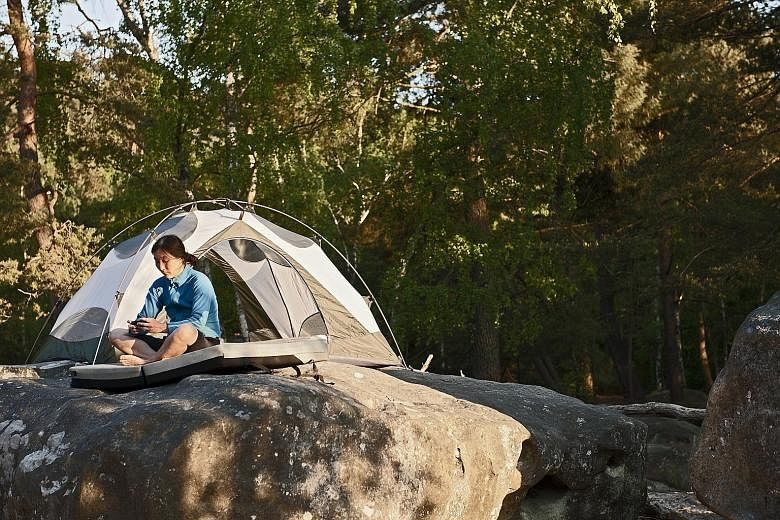Falling asleep may come a little easier when it happens beneath the stars.
A new report from the University of Colorado in the United States backs up that woodsy wisdom with evidence taken from a small group of campers.
A weekend trip was enough to make a difference in the rise and fall of the hormone melatonin, which regulates the body's biolo- gical clock.
"Living in our modern environments can significantly delay our circadian timing and late circadian timing is associated with many health consequences," said sleep researcher Kenneth P. Wright, author of the new study published in the journal Cell. "But a weekend camping trip can reset it."
IMPACT OF NATURAL LIGHT
Dr Wright's previous research suggested that a week of summer camping was enough to shift sleepers to be more in sync with the rise and fall of the sun.
"Lights have a powerful effect beyond vision," he told Popular Mechanics in 2013, when that study was published.
In the first part of this year's follow-up study, Dr Wright and his colleagues wanted to know if less time spent outdoors would have a similar effect.
They compared nine campers, who spent two summer days and nights outdoors, against five people who stayed indoors for a weekend.
The weekend campers were exposed to a four-fold increase in natural light. Saliva swabs showed that their melatonin levels rose 1.4 hours sooner each evening.
Although they did not go to sleep earlier than they had during the week, the campers did not stay up any later, either.
For those who stayed at home, weekends meant staying up later at night and sleeping in later in the morning.
A weekend "phase delay", as the scientists described it in the study, "contributes to social jet lag on Monday morning".
The effect was not quite as profound as spending a week outside, but it was still a significant change.
Dr Wright said: "Weekend exposure to natural light was sufficient to achieve 69 per cent of the shift in circadian timing we previously reported after a week's exposure to natural light."
The second approach asked a different question - would there be a seasonal difference between a week spent outdoors in the winter versus the summer?
Winter campers were exposed to fewer hours of sunlight than summer campers.
But the light that winter campers received was 13 times stronger than if they had spent a week indoors. The scientists attribute this to the fact that, during winter, a larger proportion of our light is artificial.
The Rocky Mountain campers fell asleep about 21/2 hours earlier and slept for a longer stretch of time.
The researchers concluded: "Our findings demonstrate that the human melatonin rhythm adapts to short summer and long winter nights when living in a natural light-dark cycle - something that has been assumed but never demonstrated with respect to the 'natural light-dark cycle'."
But camping should not be viewed as a panacea for the sleep- deprived, Dr Wright pointed out in an interview with the BBC.
"We're not saying camping is the answer but we can introduce more natural light to modern life," he added.
Unless an effort is made to keep up with a natural cycle, such as early-morning outdoor walks and weaning ourselves from screens in the evening, we are likely to return to our indoor habits.
OVERRIDING THE BODY CLOCK
Sleep experts have long cautioned that disrupted circadian rhythms have a lasting impact.
"What we do... is override the clock. Long-term acting against the clock can lead to serious health problems," Oxford University circadian neurobiologist Russell Foster told the BBC in 2014.
Late circadian timing, Dr Wright and his colleagues noted in the new paper, has been associated with poor school performance, obesity and mood disorders.
The authors of the study argued that, even when we cannot head to a camping site for the weekend, lessons from the outdoors can be applied to our indoor lives.
For instance, architects could consider funnelling more natural light into a building, Dr Wright said.
He encouraged lighting firms to "incorporate lighting that could change across the day and night".
And, yes, good sleep habits also means letting go of mobile phones and logging off Twitter as you prepare to hit the hay.
THE WASHINGTON POST

